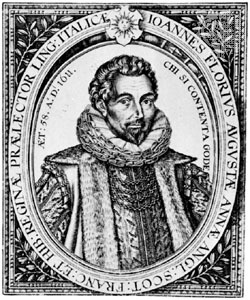King Lear Contents
Social insecurity
Politics and morality
In Shakespeare’s time many people believed that the end of the world was imminent. One of the symptoms of the approaching catastrophe would be a collapse of social structures, including the political system and what were seen as ‘natural’ hierarchies in which people knew their place in the social pecking-order. Thus it was a relief to many when James I acceded to the throne of England, as potential civil war was avoided and there was the additional promise of unification between England and Scotland.
The threat of civil war is alluded to several times in King Lear and the play raises an important point about the behaviour of the ruling classes. If rulers behave immorally, then their conduct spreads like a disease which carries evil throughout society – even causing it to fall apart. The Britain depicted in the play is in a very fragile state. However, in the end it is rescued from evil that has spread downwards from the very highest ranks of society. Civil war is avoided and the country does not fall into French hands.
Shakespeare’s play could be seen as being firmly behind traditional ideas of civil authority and supportive of what many would have regarded as the strength and harmony established by James I. It is significant that the first Court performance of the play was on the day after Christmas, December 26 1606.
Threats to social stability
Shakespeare’s plays contain many references to the disasters that occur when social structures are overturned. In both Julius Caesar and Macbeth there are descriptions of the universe being thrown into chaos because of the actual or planned assassination of a ruler. The Elizabethan world-view saw that social happiness depended on stability.
Some scholars have seen that Shakespeare identified Edmund’s unscrupulous ambition in King Lear with a disturbing social phenomenon of his own time, the rise of the new commercially active classes, i.e. the middle classes of the cities and the lesser landowners of the countryside. The financial success of such groups depended on their engagement with trade and banking rather than more traditionally depending on the land. This put them at odds with the old aristocracy whose wealth and power largely derived from their vast estates. The new commercial classes put much emphasis on finance and this was seen as unscrupulous by those who had inherited ‘old’ money. Edmund may well have represented the ‘new man’ in his lack of traditional, chivalric scruples and his concern for his own advancement.
Edmund has ‘new’ beliefs too. In his opening speech he declares: ‘Thou, Nature, art my goddess’ and he states that he will be independent of ‘the plague of custom’ and its socially manufactured moral standards. Such views are in sharp opposition to the old world of traditional aristocratic values represented by Lear, Gloucester and Edgar, Edmund’s enemies.
Contemporary events and King Lear
 King Lear includes various topical references from 1603. For instance:
King Lear includes various topical references from 1603. For instance:
- Shakespeare may have chosen the name of Lear’s daughter Cordelia after a woman called Cordell Annesley. In 1603 a notorious legal case was that of Brian Annesley, a wealthy man who had three daughters: Grace, Christian and Cordell. When Grace, with the encouragement of Christian, tried to have her father declared insane and incompetent, Cordell defended her father, protesting to Lord Cecil, the King’s Secretary of State, about her elder sisters’ actions and saying that her father’s loyal service to the late Queen Elizabeth deserved better treatment
- John Florio published his translation of Montaigne’s Essays, which had a significant influence on Shakespeare’s ideas in King Lear and also on his use of language
- Samuel Harsnett published A Declaration of Egregious Popishe Impostures which greatly influenced the way in which Shakespeare presented Edgar’s dissembled lunacy in King Lear.
The opposite of goodness; thoughts and actions which are in opposition to God's will and result in wrongdoing and harm. That which opposes God.
Recently Viewed
Scan and go

Scan on your mobile for direct link.